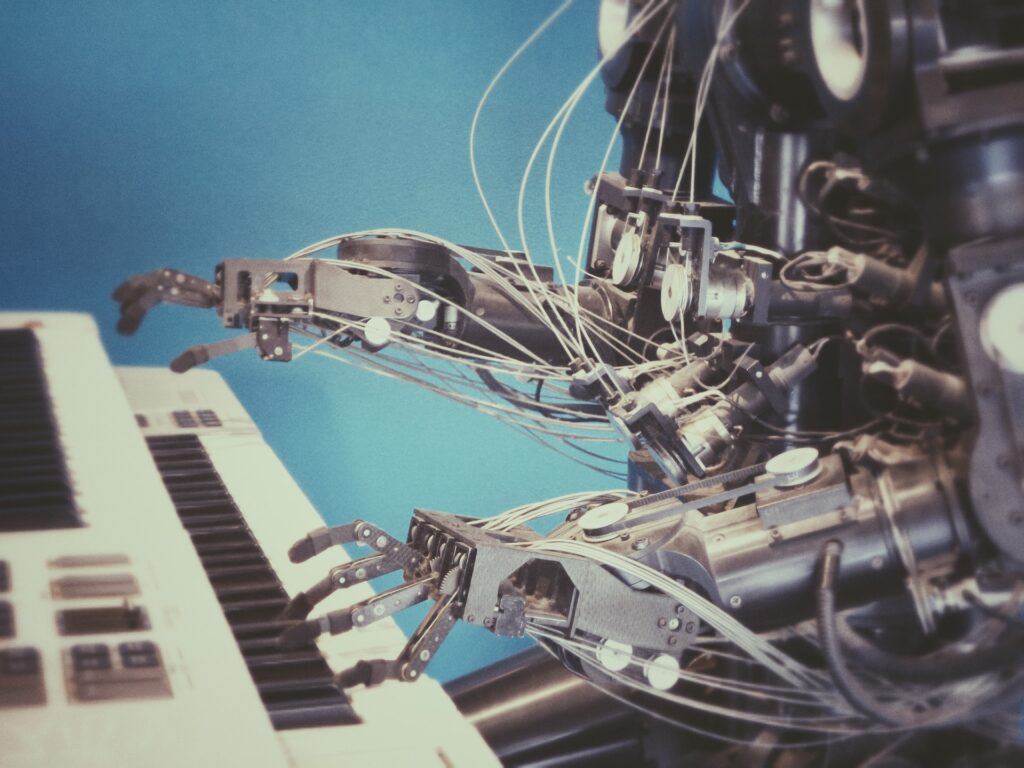
Recently, artificial intelligence (AI) has advanced significantly and has turned into a vital tool for many businesses. AI is the process of creating computer programs that are capable of learning, making decisions, and solving problems—tasks that traditionally require human intelligence. From healthcare to banking to manufacturing, the use of AI has significantly advanced several industries. This essay will examine how AI is changing various sectors and what that means for the nature of work in the future.
Healthcare Industry
AI has made significant transformation in the health industry. AI is used to analyze vast amounts of medical data and provide insights that can improve patient care. For instance, it can also be used in medical diagnosis and treatment to identify patterns and make predictions based on data analysis. This can lead to earlier diagnosis and more effective treatments for patients.
Furthermore, AI can identify the best course of treatment for a specific patient by analyzing patient data such as genetic information and medical history. Hence, leading to more effective treatments and better outcomes.
Furthermore, AI has reduced the workload of healthcare professionals by answering their queries and scheduling appointments by use of AI-powered chatbots.
Finance Industry
AI is also transforming the finance industry. Thanks to AI, financial institutions can better understand customer behavior and make more informed decisions. For instance, AI algorithms can analyze customer data to identify patterns and make predictions about customer preferences and needs. This can help financial institutions offer customized services and products that meet their customers’ specific needs.
AI can be used to detect fraudulent activity, hence, help financial institutions to prevent fraudulent transactions and protect their assets and customers.
Manufacturing Industry
The manufacturing industry is also being transformed by AI. AI-powered machines and algorithms can optimize manufacturing processes and improve product quality. For instance, AI can be used to optimize production schedules and reduce downtime, leading to increased productivity and cost savings.
AI can also be used to improve product quality by identifying defects in real-time preventing the defective products from reaching customers, hence, improving customer satisfaction.
Future of Work
The nature of employment is changing as a result of the application of AI in numerous industries. As computers and algorithms powered by AI become more capable of carrying out tasks that were previously performed by people, job displacement will occur in some sectors of the economy.
However, as AI technology develops, new positions in disciplines like data analysis, machine learning, and AI research are opening up. These positions call for specific talents that are in high demand, giving people additional career options.
Education Industry: Different institutions around the world are utilizing AI for different purposes, such as creating personalized learning experience for students, providing real-time feedback for teachers and improving student outcomes.
Retail Industry: AI can provide support for retail operations by analyzing customer data and providing personalized shopping experiences, inventory management and streamlining supply chain operations since retail businesses need to prioritize profit and productivity to remain competitive in today’s global market.
Transportation Industry: AI can be used to optimize logistics and route planning, improve safety through driver assistance systems, and develop autonomous vehicles.
Energy Industry: AI has many applications in the energy industry which include, optimizing of energy production and consumption, improvement of the efficiency of energy grids, and developing new renewable energy technologies.
Legal Industry: AI can be used to analyze legal documents and contracts, automate routine legal tasks, and provide legal insights and predictions based on data analysis.
Entertainment industry: By utilizing augmented and virtual reality technology, AI may be utilised to tailor content recommendations for users, streamline production procedures, and develop fresh immersive experiences.
Agriculture industry: AI can be used to monitor and forecast weather patterns, boost crop output through precision farming methods, and decrease water use and environmental effect.
Conclusion
Healthcare, banking, manufacturing, and other sectors are all being transformed by AI. Machines and algorithms with AI capabilities can evaluate enormous volumes of data and offer insights that enhance productivity. However, the usage of AI has effects on the future of work as well, with new occupations being created while some jobs are being lost. Understanding how AI will affect different industries and the workforce can help you plan appropriately as the technology develops.
Our website uses cookies to improve your experience. Learn more about: cookie policy



